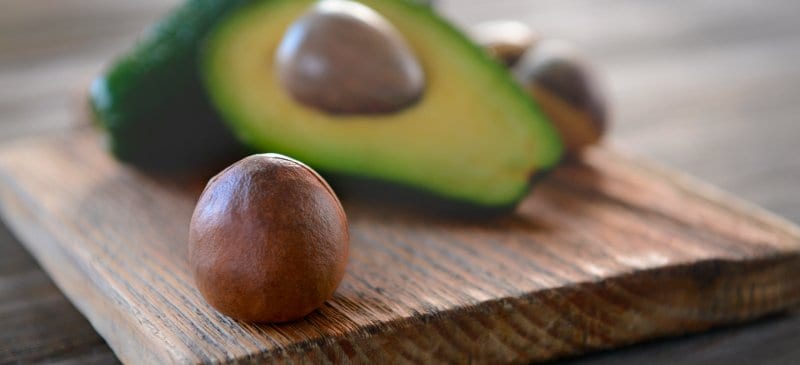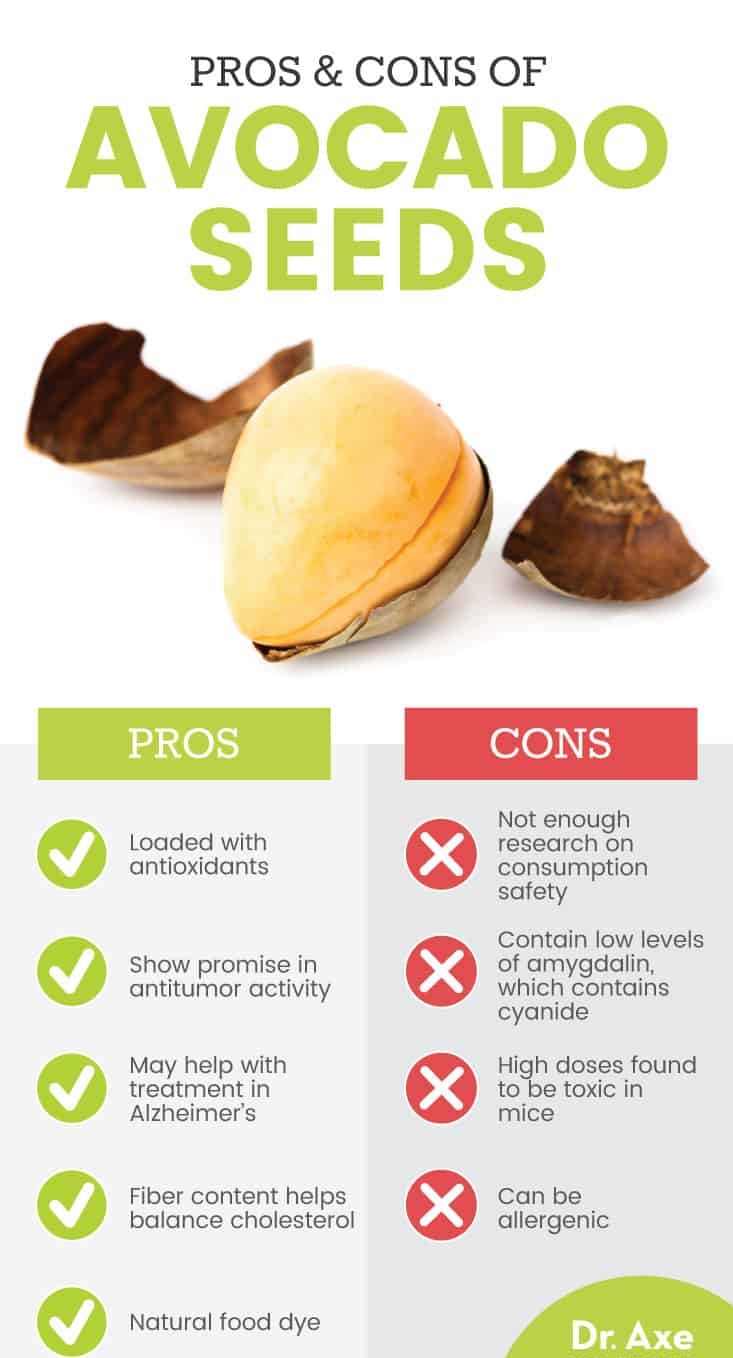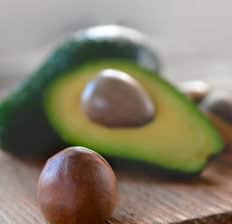This Dr. Axe content is medically reviewed or fact checked to ensure factually accurate information.
With strict editorial sourcing guidelines, we only link to academic research institutions, reputable media sites and, when research is available, medically peer-reviewed studies. Note that the numbers in parentheses (1, 2, etc.) are clickable links to these studies.
The information in our articles is NOT intended to replace a one-on-one relationship with a qualified health care professional and is not intended as medical advice.
This article is based on scientific evidence, written by experts and fact checked by our trained editorial staff. Note that the numbers in parentheses (1, 2, etc.) are clickable links to medically peer-reviewed studies.
Our team includes licensed nutritionists and dietitians, certified health education specialists, as well as certified strength and conditioning specialists, personal trainers and corrective exercise specialists. Our team aims to be not only thorough with its research, but also objective and unbiased.
The information in our articles is NOT intended to replace a one-on-one relationship with a qualified health care professional and is not intended as medical advice.
Avocado Seed: Unsafe to Eat or the New Super-Seed?
July 9, 2021

The avocado continues to be all the rage with every type of avocado toast you can imagine found at nearby cafes. Additionally, avocado benefits come from its healthy fat — something keto diet fans crave — but what about the avocado seed?
Before you toss that seed, you may want to tune in to what it can do for you. For instance, it provides amazing antioxidants and potential health benefits.
Keep in mind, however, the safety of consuming the avocado’s pit is still up in air, with most studies involving animals and not humans. Read on to see what potential health benefits come from the seed’s extracts.
What Is an Avocado Seed?
An avocado seed is within the large, hard shell beneath the flesh of the fruit. Most people simply eat around it, but are avocado seeds edible?
There’s mixed recommendations on this. The California Avocado Commission specifically states that there is not enough data to know just how good the avocado seed is for you. Basically, it recommends avoiding it for now and suggests that sticking with the amazing nutrition found in the avocado flesh is a far better choice.
On the other hand, research is being conducted, and some indicates that it may be a healthy alternative to consume and use with cosmetics.
The avocado tree originated in southern Mexico and Columbia around 7,000 years ago. The trees made their way to the United States in 1833 thanks to Judge Henry Perrine, who had them sent from Mexico to Florida.
Hass is probably the most familiar avocado name and for good reason. It was Rudolph Hass who developed the Hass variety in 1932.
The avocado industry has been going strong for decades, but the avocado seed seems to be a newer discovery. That is why there isn’t much in the way of research on this part of the fruit.
When the seed is cut in pieces, roasted and pulverized, it can be consumed to potentially help overcome issues like diarrhea and dysentery. The powdered form of the seed may help relieve dandruff, and a piece of the seed placed into a tooth cavity may help to eliminate a toothache.
Because the milk of the avocado seed turns a bit red when exposed to air, it can be used as a topical ointment or rubefacient — to redden the cheeks by causing dilation of the capillaries and an increase in blood circulation.
The seed contains a milky fluid similar in odor and taste of the almond. It turns red once exposed to air due to its tannin content, but some say the liquid is not edible.
This red-brown or blackish “ink” was used to write many documents during the Spanish Conquest — documents that are now preserved in the archives of Popayan. The ink of the avocado seed has also been used to mark cotton and linen textiles.
Potential Health Benefits
1. Shows Promising Antitumor Activity
Avocado seed contains biscatechin, a condensed flavanol. One study isolated biscatechin from avocado seeds and tested it in mice and rats. The biscatechin was shown in vitro to have antimicrobial activity and antitumor effects on the animals.
Another study published in the American Journal of Chinese Medicine noted catechin as a flavanol that offers various health benefits, such as neuroprotection, antioxidation, antitumor and antihepatitis characteristics. The falvanol shows that it is capable of suppresses inflammation in possible cancerous cells.
2. Great Antioxidant Source
Did you know that the avocado seed is a great antioxidant food?
A 2018 study published in Molecules found that extracts obtained from avocado seeds are high in antioxidant power. The extracts are used to delay oil oxidation, and they have high free radical scavenging effects.
Another study published in the journal Antioxidant found that avocado pit extractions displayed excellent antioxidant results when its protective effects were tested on beef burgers. The antioxidants present in the pit reduced meat oxidation, as well as oil oxidation.
3. May Help Patients with Alzheimer’s
Alzheimer’s disease affects the brain and is considered one of the most neurodegenerative diseases on the planet. Many studies have been conducted to review the phytochemical content of the avocado seed to see if it could be effective against such conditions.
An evaluation published in the Journal of Basic and Clinical Physiology and Pharmacology showed evidence of saponins, alkaloids and terpenoids in the extracts of the avocado seed. Researchers indicate that these phytochemicals may offer a natural approach to helping manage the effects of Alzheimer’s disease.
The anti-cholinesterase and antioxidant activities of avocado leaf and seed could be linked to their phytoconstituents and might be the possible mechanisms underlying their use as a cheap and natural treatment/management of AD. However, these extracts should be further investigated in vivo.
4. Can Help Balance Cholesterol Levels
The avocado seed is one of the top high-fiber foods on the planet, and we know fiber can help balance cholesterol levels. That may be why research shows avocado seeds can lower cholesterol.
Research from Penn State University’s Department of Food Science details the benefits the avocado seed has on cardiovascular health.
Researchers noted that “avocado seeds may improve hypercholesterolemia, and be useful in the treatment of hypertension, inflammatory conditions and diabetes. Seeds have also been found to possess insecticidal, fungicidal, and anti-microbial activities.”
5. Works as a Natural Food Dye
Since conventional food coloring and food dyes contain chemical-based ingredients, it is best to go with natural options. You may have heard of beets being used to create a reddish color, for example.
Research has discovered that when crushed and blended with water, the avocado seed develops an orange color.
This is great news since so many foods, especially food for children, are loaded with toxic dyes. Specifically, the numbered colors blues #1 and #2, green #3, red #3, and yellows #5 and #6 are synthetic or artificial colors.
These colors are made from coal tar or petroleum and can cause all sorts of problems for your health, such as allergies, asthma, hyperactivity and cancer. In fact, artificial food dyes have been banned in the U.K.
6. May Help Eliminate Microbial Growth
The residue of the seed of the avocado is rich in polyphenols, making the seeds powerful antioxidants and antimicrobials. Among the polyphenols are:
- catechin
- epicatechin
- chlorogenic and protocatechuic acid
This residue has been applied to pork burgers in research. It showed the residue of the avocado seed to be effective in preventing oxidation and microbial growth.
The study published in Antioxidants referenced above showed the effects that ground avocado has on meat. For a period of eight days, ground beef was observed containing 0.5 percent seed powder and 0.1 percent of lyophilized extract.
Little oxidation occurred, meaning the protection was higher than 90 percent. To note, the study indicates that avocado oil, added directly to the pork burgers, had a similar effect.

Risks and Side Effects
Is it safe to eat the avocado seed? The California Avocado Commission says eating the flesh is great, but the seed — not so much.
It reports that there simply is not enough research as noted in the 2013 research study by Pennsylvania State University referenced above. The university also indicated that “the safety of the various extracts of the avocado seeds must be assessed in order to more fully estimate the usefulness of this resource.”
There are some animal studies suggesting that consuming avocado seed extracts or powder is safe for short-term consumption, but we need more human-based evidence before knowing for sure if it’s a safe option.
A good rule of thumb is to avoid anything new or lacking research, especially if you are pregnant, breastfeeding or have any health conditions. Consult with a doctor for further information.
The good news is the research is coming, and early indications are it has benefits and could be promising if further studies confirm this.
How to Eat
Avocados can be found at most grocery stores. A ripe avocado is a bit soft yet still firm. If it feels like it might be mushy, it is probably too ripe.
Whether that affects the nutritional value of the seed is not clear. To benefit from the creamy, delicious avocado too, purchase a ripe one or one that is nearing the ripening stage, and allow it to sit on the counter or in the fridge until ready.
Once you have the perfect avocado, wash it, and then using a chef’s knife slice lengthwise around the avocado. You should be able to gently twist the two halves apart.
Remove the seed from the avocado. To do this, use the chef’s knife and gently but firmly tap the heel of the blade of the knife right into the seed.
It will catch. Then, give it a little twist. The seed should come right out.
In order to eat the avocado seed, it needs to be ground into a powder. To do this, you can smash it with a mallet. Just put it in a thick plastic bag first.
Another option is to dry it out. To dry it out, put it in the oven for a couple of hours at around 250 degrees.
Next, take it out of the oven, and remove the outer skin. Use an oven mitt to protect you from the heat of the avocado seed.
Now that you have dried it out, press on it with the back of a thick knife blade to split the pit in two. Dice the pit halves, and toss into a high-powered blender. Pulse or grind until it has reached the consistency of a powder.
You can also use a cheese grater, spice grinder, or heavy mortar and pestle. Store in a sealed container in your refrigerator.
Now that you have this nutritious powder, what do you do with it? Since it is bitter due to the tannins it contains, using it with other ingredients, such as a banana, pineapple and spinach, to make a smoothie may be the best way.
However, you can sprinkle it on your morning eggs or put it in soup or on a salad. Another option is to put the powder into capsules, which can be found at health food stores, and consume as a supplement.
Avocado Seed Power Smoothie Recipe
Ingredients:
- 1–1¼ cups unsweetened almond milk
- ½ ripe avocado
- 1 handful spinach
- 1 tablespoon almond butter
- 1 tablespoon chia seeds, soaked in 3 tablespoons of water for about 10 minutes
- ½ teaspoon ground avocado seed
- 1 scoop of vanilla or chocolate protein powder (preferably from bone broth)
- 1 small frozen banana
- ice (optional)
- ¼ cup water, if needed for a thinner consistency
Directions:
- Add contents into a high-powered blender, and blend until well-combined.
Avocado Seeds vs. Other Seeds
While the debate is still out about whether eating ground avocado seed is a good choice, it has been compared to the extraction process of the phenolic compounds from strawberries, apple pulp and the residues of chestnuts.
Apricot seeds and peach seeds contain a cyanide called amygdalin. While it would probably take a lot to get sick, it is best to stay on the safe side when it comes to seeds or any food if you are not sure.
Conclusion
Is the avocado seed the new super-seed? Maybe, but since there is not enough substantial evidence to prove this, I recommend having small amounts or avoiding altogether.
Be aware of how you feel upon consumption, and check with a doctor if you have any concerns.
The good news is the avocado seed has some researched benefits, including:
- promising antitumor activity
- great antioxidant source
- may help patients with Alzheimer’s
- balancing cholesterol levels
- natural food dye
- antimicrobial effects











